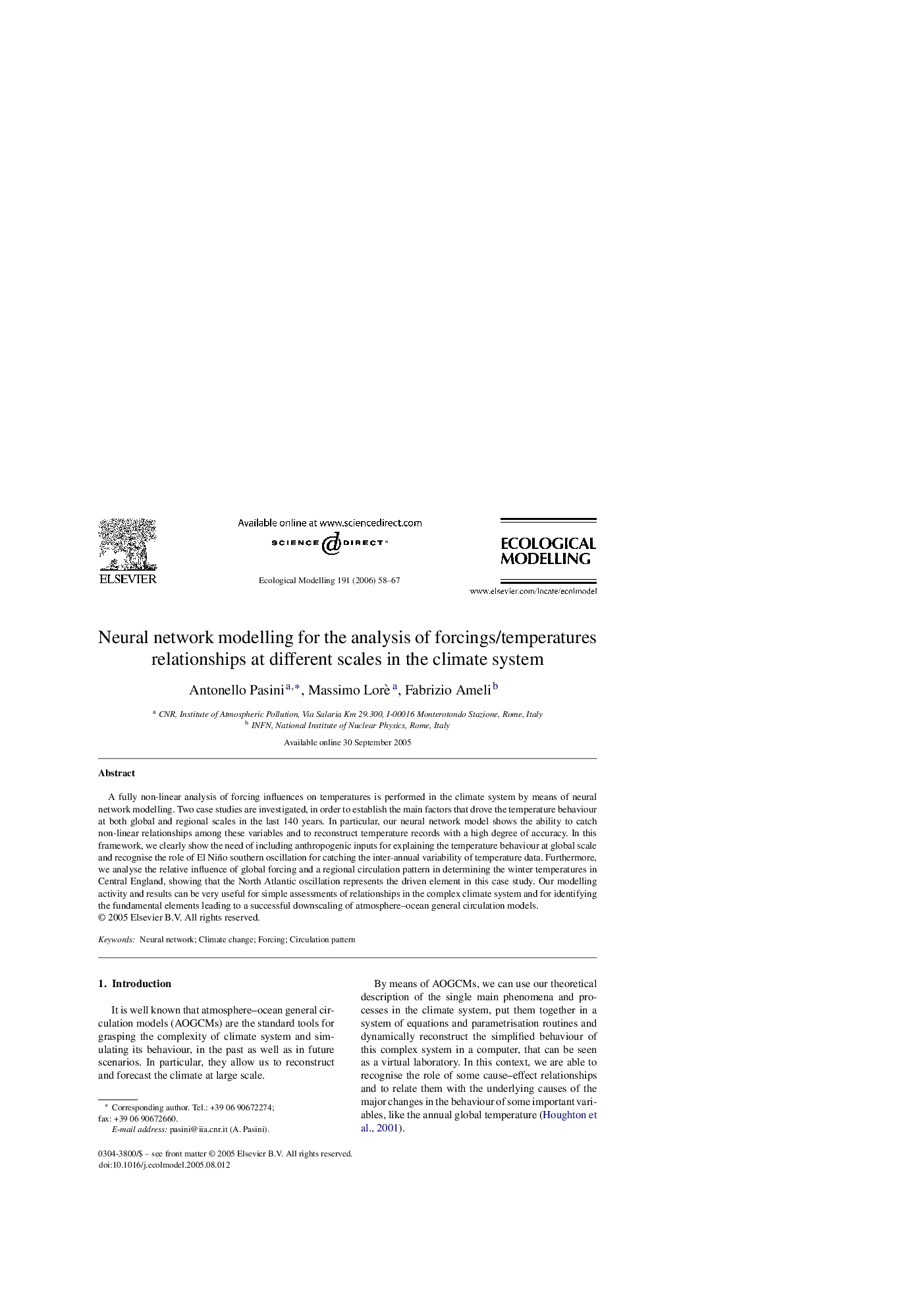| Article ID | Journal | Published Year | Pages | File Type |
|---|---|---|---|---|
| 4379382 | Ecological Modelling | 2006 | 10 Pages |
A fully non-linear analysis of forcing influences on temperatures is performed in the climate system by means of neural network modelling. Two case studies are investigated, in order to establish the main factors that drove the temperature behaviour at both global and regional scales in the last 140 years. In particular, our neural network model shows the ability to catch non-linear relationships among these variables and to reconstruct temperature records with a high degree of accuracy. In this framework, we clearly show the need of including anthropogenic inputs for explaining the temperature behaviour at global scale and recognise the role of El Niño southern oscillation for catching the inter-annual variability of temperature data. Furthermore, we analyse the relative influence of global forcing and a regional circulation pattern in determining the winter temperatures in Central England, showing that the North Atlantic oscillation represents the driven element in this case study. Our modelling activity and results can be very useful for simple assessments of relationships in the complex climate system and for identifying the fundamental elements leading to a successful downscaling of atmosphere–ocean general circulation models.
